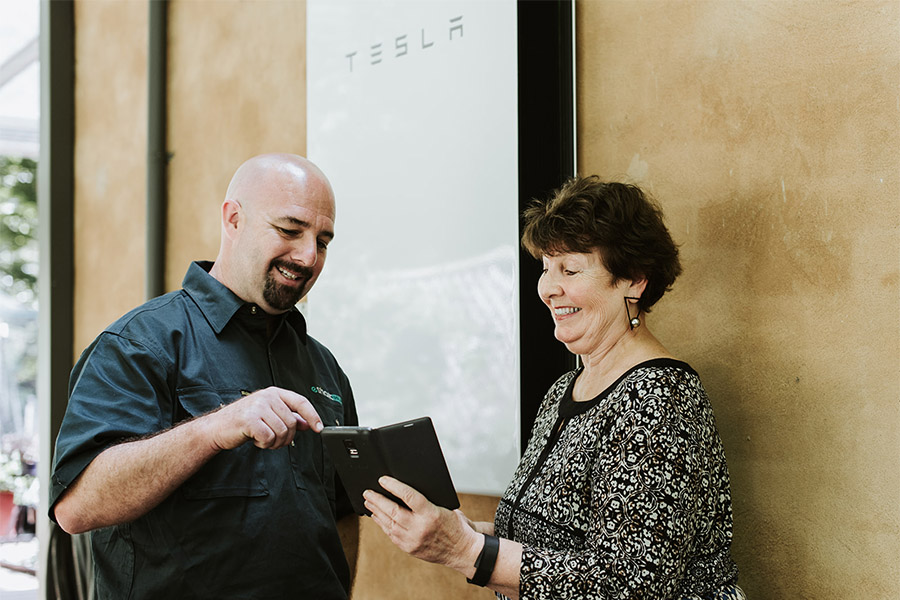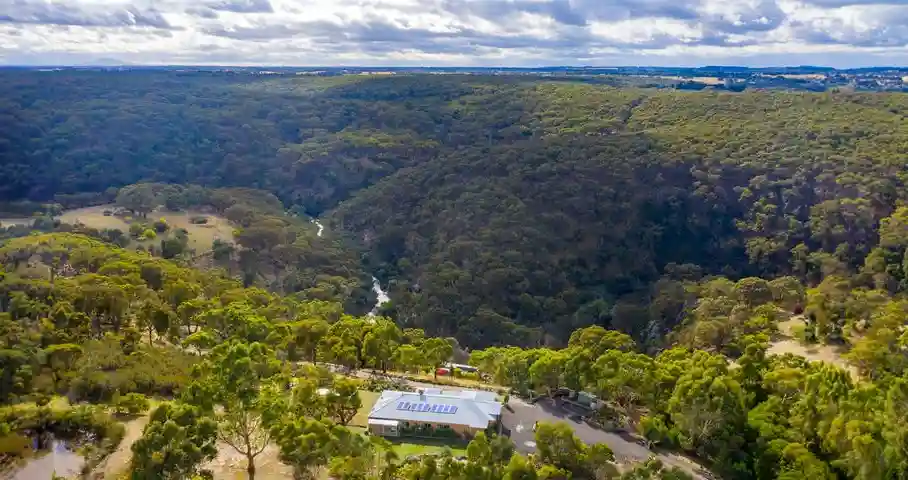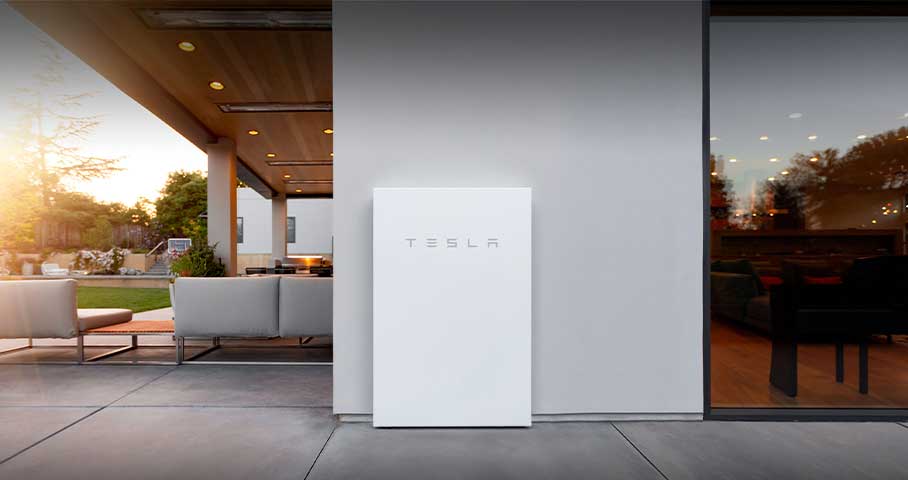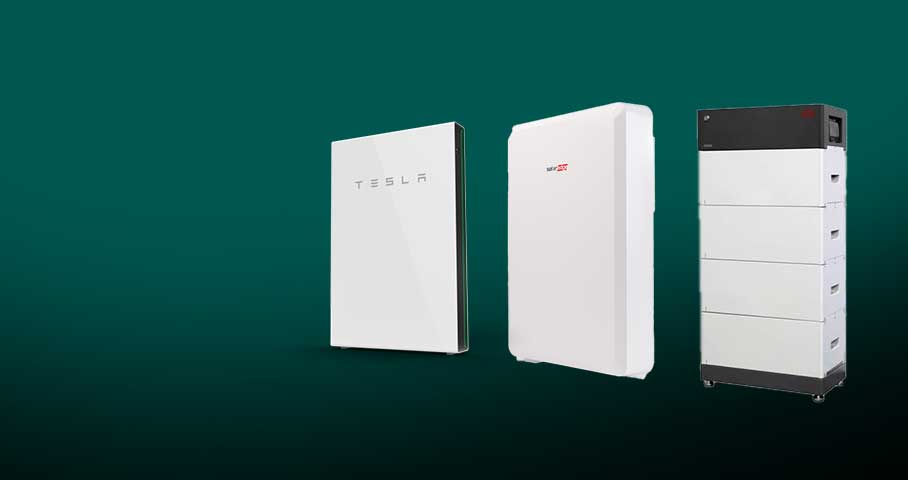A cheap solar system can be appealing but are you really getting the best value for your money?
Before you make the jump, find out what it means to install cheap panels from reliable sources. LG Energy has great information on everything solar, so we’ve put together some of the most relevant and frequently asked questions we get asked at E-Smart Solar about cheap solar panels. Read all of the LG Energy FAQs on their website.
1. Why should I choose a good brand solar panel?
Arguably, the quality of your solar panels and the inverter are the most crucial factors in selecting a solar system. Over their 25 year output warranty period, solar panels will be subjected to more than 100,000 hours of relentless sunshine, extremes of heat and cold, wind, rain, hail and more.
Australia offers an extraordinarily harsh climate for an electrical device. A good brand like LG, with their extensive testing and quality control helps ensure that you get the most out of your system over its long operating life.
2. What is the difference between entry level solar panels versus the slightly more expensive quality ones?
A good quality panel differs from a cheaper one in the sealing materials used such as backing sheets, the soldering and the efficiency of the solar cells. For example, whilst LG panels will cost slightly more they are designed to deliver year after year performance.
In Australia solar systems with inferior product are now failing after only relative short periods on the roof. Unfortunately in some cases the installation companies have closed shop and the consumer is left to sort out the issue alone.
When talking to a reputable installer like E-Smart Solar, ask about high quality branded components.
Solar panels generate high voltage DC electricity and therefore have to be installed as per precise Australian Standards to ensure a safe system.
3. What cause delamination in a solar panel?
Delamination occurs when the bond between the plastics (on the back) and the glass (on the front) separate. This is problematic for a solar panel because it allows air and moisture to creep inside which will cause corrosion and imminent failure.
Delamination will occur if:
- Inferior plastics are used or
- If the thermal properties of the plastics are poorly understood so it doesn’t melt to exactly the right point or
- The plastics or the glass are not perfectly clean and compatible or
- The laminating machine is inferior and poorly regulated for pressure and temperature
Bubbles, creases or imperfections on the plastic rear surface are an indication of the workmanship in lamination and can be an early sign of delamination.
4. Is it worthwhile to buy quality panels and save money on an inverter?
The inverter is the most hard working component in any solar power system. The inverter converts the direct (DC) current generated by the solar panel into alternating current suitable for the grid or your home. Every time there is a change in intensity/ radiation of the sunlight, every time there is a cloud covering the sun, the inverter has to adjust the electricity being converted. During the day light hours an inverter never stops working. At night naturally it turns itself off.
In summary: A solar inverter is responsible for reliable yield monitoring and ongoing grid management. For this reason the correct inverter selection is vital to ensure that you make the most out of every ray of sunshine. Your investment in good products like LG solar panels and a known European brand inverter will lead to solid yield efficiency and a longer solar system life.
5. What makes an inverter a good quality inverter?
Inverters are complex electronic devices and like any such device, they can be built to a price or built for robustness and performance. Unless you happen to be an electronics engineer, it is very hard to know how the quality of the components used in a given inverter will translate into life expectancy. However, there are a few things that you can use to guide you.
Firstly, the rules of experience, commitment, transparency and size of the manufacturer play a role. So ask yourself, is this inverter manufacturer one of the 2 or 3 leading manufacturers. Have they been making inverters for a long time and developed and improved the product over the years? Have they got Australian service centres to address faults with the inverter quickly? How about the warranty conditions and how long is the warranty. Is labour for repairs during warranty included? If so, make sure you get this in a written document, which you keep with the receipts for your system in a safe place.
Secondly, you can tell a bit about the product by the quality of its construction; are the materials used high quality? Is it built to keep out insects and weather? Has cooling been carefully considered? Is it fan based and/or convection? With moving parts there is more chance of a malfunction. Does it have a good set of features and not too many gimmicks? Where is it made and which company backs it?
Although inverters have reduced in price significantly in recent years, as a general rule, you get what you pay for. From the outside they all look like a colourful box, but it’s the inside that makes a big difference in years to come.
Performance is typically measured through features, conversion efficiency (how much power is lost in transferring DC to and from AC ?) and the inverters ability to deliver power under a wide range of conditions. We recommend reading the inverter datasheets and asking your installer for advice. Avoid offers that seem too good to be true.
6. Why are sealants an important factor of quality in a panel?
Sealants are used to seal the junction box on the rear of the solar module to prevent moisture getting into connections and sometimes to bond the laminates solar panel into its aluminium frame. If poorly matched, some sealants can react with the plastics causing premature degradation. Although non-flammable sealants are available, cheaper, flammable alternatives are sometimes used to reduce costs.
Frame sealants need to stay flexible over time and in varying temperatures to allow for thermal expansion and contraction between the glass laminate and the aluminium frame.
When you are assessing a solar panel, look very closely for evidence that the sealants are applied precisely and carefully as a sign of good workmanship. Excess sealant oozing onto the glass indicates poor control over the dosage and could mean that too much is in some places, and too little in others.
7. Some solar panels are assembled by hand and some by machine, does it make a difference?
When a solar panel is being assembled and prepared for lamination it is crucial that no dirt, solder, dust, hair or other foreign particles are caught or they can cause bubbles in the laminate or air gaps which can lead to premature failure. Strictly clean conditions are essential in manufacturing solar panels. LG panels for example are made in semi conductor environments, to remove dust from the environments.
The alignment of solar cells is also an important indicator of workmanship in a solar panel. Poorly aligned solar cells can introduce stress into the interconnections or the potential for current leakage between cells.
When you are assessing a solar panel, check that there are no inclusions accidentally laminated under the glass and that the solar cells are perfectly aligned as this will affect the output of the system.
8. Is it important to have quality accessories to your solar system?
Quality and certified to Australian standards accessories are essential for the long term peace of mind performance of your solar power system. All quality products like your LG solar panels, known European brand inverter and branded mounting system accessories will help you extend the life of the system. Don’t forget LG panels have a 25 years efficiency warranty and you want all parts of the solar system to last as long as possible.
While cheap solar inverters regularly break down after a year or two – despite 5 year warranties (if the manufacturer has gone bankrupt, a warranty is worth very little) quality inverters installed in 2005 are still working today.
9. The solar company that installed my solar system has closed its business? Where do I go now?
If the company which has sold you the system has closed down, you still have the recourse of calling the accredited installer who installed the system.
After the installation of your system, you would have been given a copy of the installation certificate. The installer contact details and license number is given. The installer might still be liable to check the system if it falls within the workmanship warranty period. Call your local Department of Fair Trading for advice.
If the original solar install company does not trade anymore and you cannot locate the original licensed and certified solar installer, you have the option to call another local solar installer. Explain the issue with your solar system and be frank that you have not purchased the system from him, but that you need professional solar support. Be prepared to have to pay for a call out fee.
10. What is the lifetime of a solar power system?
The life span between a cheap and a quality solar system differs. For example, high quality inverters on average can last longer than a decade, while some very cheap inverters may have high failure rates after only a few years.
Solar panels do not have any moving parts and if they are of a good quality can last a long time.
LG solar panels, for example, are expected to reliably generate electricity for 25 years.
Some very cheap panels can fail already only after a few years.
In general you should look at the following as the minimum life of a system:
- 12 year manufacturing warranty on solar panels
- 25 year limited warranty on power production of the solar modules
- Minimum of 5 years manufacturer’s warranty on the inverter. Some solar inverter manufacturers offer a 10 year warranty(parts and labour) or the option to extend the inverter warranty for 5 years to 10 years for a small extra fee
- Also confirm that the installer gives you a long workmanship warranty on their installation work
Want to know more about avoiding cheap quality solar panel systems? Contact E-Smart Solar today and we’d be happy to help.









